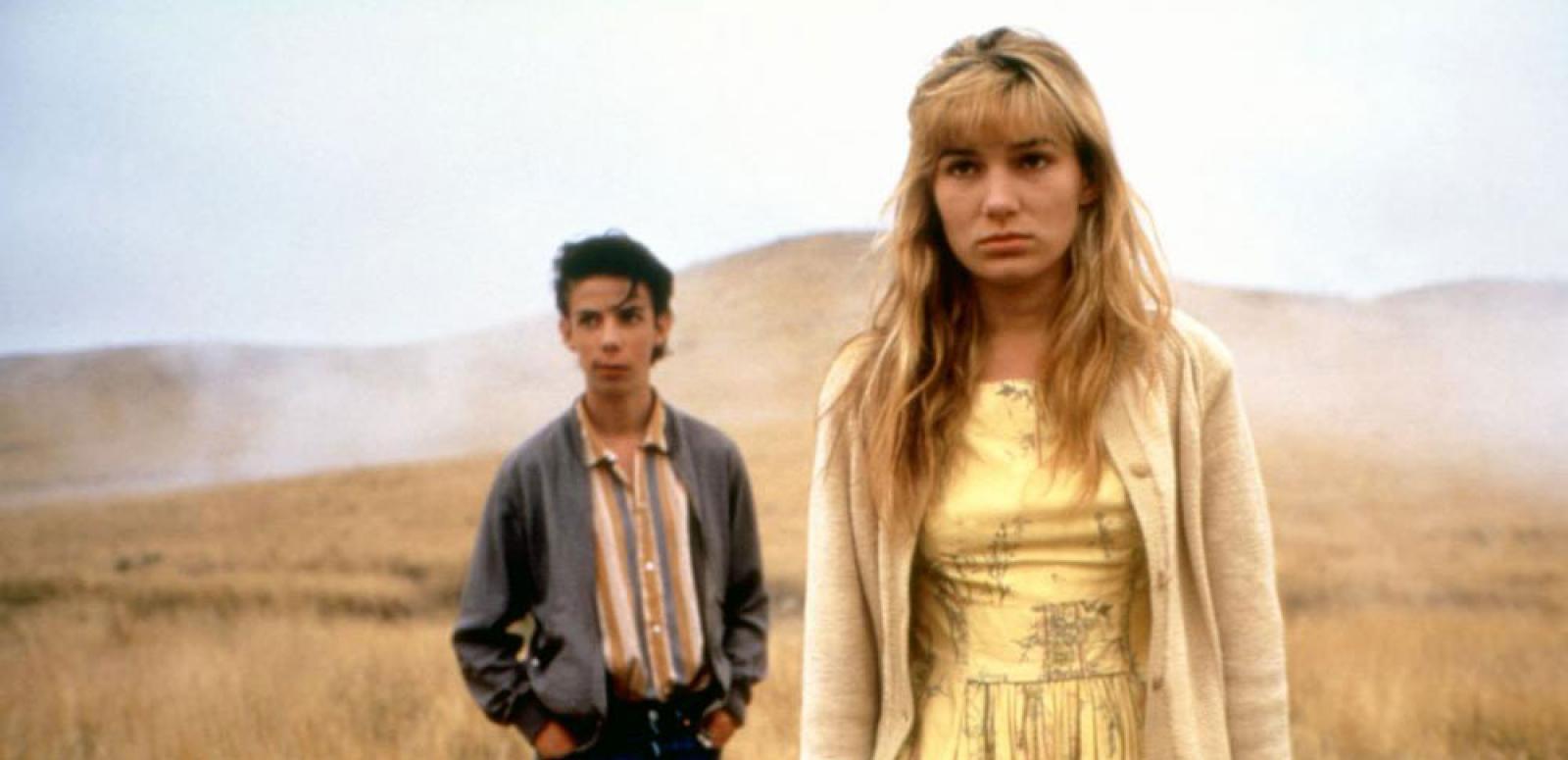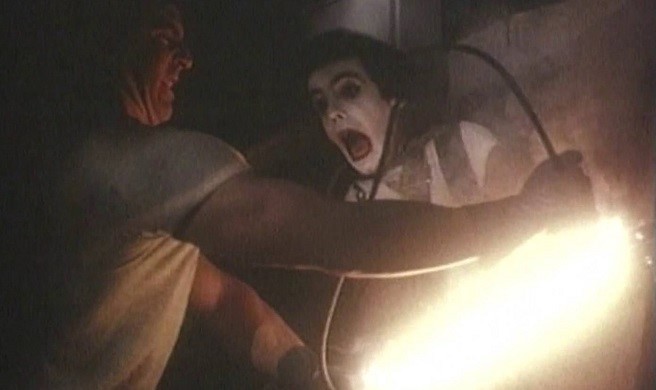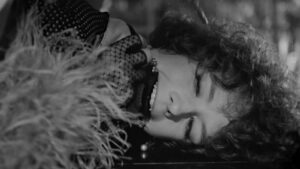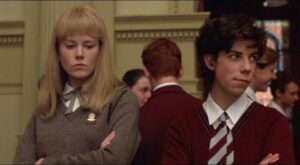![]()
The Year My Voice Broke (1987) Directed by John Duigan
This wistful Aussie coming of age flows like life itself thanks to the insightful autobiographical directorial and literary flair of John Duigan, who approaches his bittersweet adolescent memoir not as narrative but as poetry. Even though this quasi-folkloric tragedy set in the countryside coziness and entrancing rural scenery of a small Australian town has as its moral compass the same clichéd social concerns as The Last American Virgin and others of the ilk, don’t let it fool you, Duigan’s film recites its own, idiosyncratic coming-of-age lyric – one of the most artful ever committed to celluloid.
The usual awkward, heterogeneous insecurities of the typical teenager are brought to life by Noah Taylor as Danny, a 15-year-old with no social skills but plenty of visual prowess. Danny is a better observer than talker, who lives hopelessly in love with his childhood best female friend Freya (Loene Carmen) a year older than him, she unlike Danny is a skillfully social and flirtatious girl, but the two share a very special relationship, a friendship as perceptibly empathetic as it is endearing, they both deserve each other. However, Freya falls in love with a roguish high school rugby player named Trevor (Ben Mendelsohn), who is the complete antithesis of Danny. What distinguishes this gorgeous coming-of-age picture from the routine is its very solemn portrayal of the turbulent passages of adolescence. The omnipresence of the soothing rustic atmosphere – captured magnificently by cinematographer Geoff Burton – lends environmental gravitas to the implacable blues that gradually overwhelm the sensibilities of the characters, and ultimately us as well.
It is a teenage rhapsody – romanticizing these crucial formative years in life – and it is a teenage elegy – debunking the rebellious ideals of adolescence – and a film in which Danny learns the hard way that love is an unselfish endeavor, and to fear that selfless gesture is to fear life itself. The shrewdest approach this film takes to preach this ode to adolescence’s transition to adulthood is to remain faithful to youthful instincts. John Duigan delivers candor; emotions so relatable and visuals so uninhibited that the tale may be interchangeable for one’s own experience reminiscing about the good old days. Here the picture of teenage romance is not the standard one, these are horny teenagers – as it should be – Duigan’s observant camera doesn’t waste time staring at the cheesy kisses or the “I love you so much” or “I’m so in love with you”, instead there’s a lot of carnal touching, juvenile indecency and desire to get laid.
The tragic art of The Year My Voice Broke is that life flashes before Danny’s eyes, he just observes – he internalizes his sadness – and as he observes without doing anything about it, Freya falls more and more in love with Trevor and not with him. Among Danny’s many metaphorically masochistic contemplations, the harshest of them all, is that of him timidly suffering, watching in the same room as the girl of his dreams has sex with Trevor; that’s how awkward the movie is. But in the end fate forces Danny to mature, to see life from other perspectives beyond his infatuation with Freya, as tragedies reverberate through Danny and the people he loves most, he realizes that no matter what you feel at that particular moment in your past, present or future, life doesn’t care, it just goes on. The beauty of this film is so immense that even Duigan’s poetic filmmaking methodology is enamored with its own beauty. Establishing shots are not shots to establish a location, for Duigan establishing shots are a means to establish the present mood of the characters through the location. It’s an extraordinary form of filmmaking that I had never considered before. Naturally, every establishing shot in this film is absolutely wonderful. Its cinematic powers and poetic evocations feel like the intersection of the immaculate aesthetics of Terrence Malick’s pastoral fables and the sublime reminiscences of Terence Davies’ cinema.
It works flawlessly as a memory piece. And the last words Danny utters – powerfully expressed by Noah Taylor’s moving performance – as the cool winds and the tranquility of the place where he used to spend time with his beloved girlfriend embrace him, are as profound as they are painful to accept, that’s life, I guess. Heartbreaking and breathtaking.









